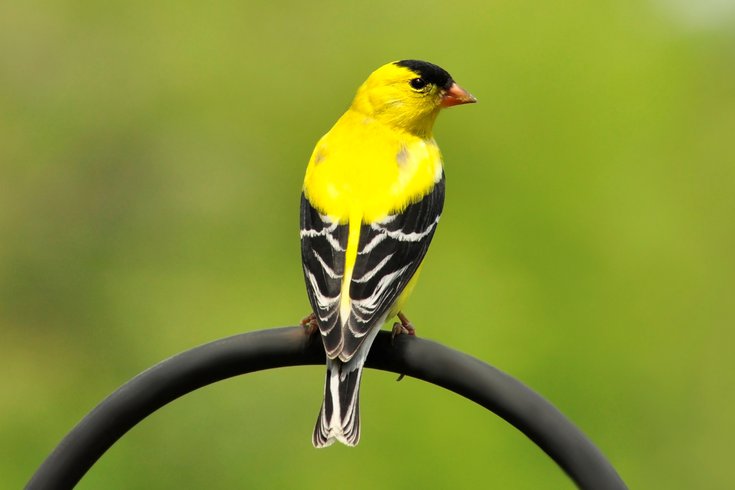
October 27, 2022
 Source/Image licensed from Ingram Image
Source/Image licensed from Ingram Image
Seeing or hearing birds is linked to improvements in mental well-being that can last up to 8 hours, a new study from Kings College London finds.
Scientists have been studying the link between nature and mental health for years, but there has been particular attention paid to their findings since the COVID-19 pandemic.
As people had to cope with lockdowns and the anxiety of getting ill, many turned to walks in nature to find some relief. Most research, however, has focused on green or blue spaces and not the wildlife that live in these environments.
New research, published in the journal Nature, found that seeing or hearing birds is associated with improvements to mental wellbeing that can last up to 8 hours. These benefits were observed among both healthy people and those with clinical depression, suggesting bird watching may help people diagnosed with mental health conditions.
Researchers from Kings College London used a smartphone app called Urban Mind to collect real-time data on the mental wellbeing of nearly 1,300 people as they saw or heard birds. Three times each day, the app asked the participants whether they could see or hear birds alongside questions about their mental wellbeing.
The links between birds and mental wellbeing were not explained by other environmental factors, such the presence of trees, plants or waterways, researchers said.
"This exciting research underpins just how much the sight and sound of birdsong lifts the spirits," researcher Jo Gibbons said. "It captures intriguing evidence that a biodiverse environment is restorative in terms of mental wellbeing. That the sensual stimulation of birdsong, part of those daily 'doses' of nature, is precious and time-lasting.”
By using the app, the researchers were able to evaluate the impact of birdlife on mental health in everyday life. Most other studies have relied on past recollections or artificial experiment settings. Still, the researchers said they couldn't determine a definite causal relationship because of the observational design of the study.
Previous research has linked exposure to nature to improved attention, lower stress, boosts in mood, reduced risk of psychiatric disorders and even increases in empathy and cooperation, according to the American Psychological Association.
A 2021 study found children in urban settings have better mental health and cognitive development if they live near woodlands and spend time there each day. Researchers also found they have a lower risk of emotional and behavioral issues.
Other research has looked specifically at the healing powers of birds. In 2020, the Natural History Museum in the United Kingdom conducted a survey on birdsong and found that 73% of people reported hearing louder birdsong during the COVID-19 lockdown. And many reported feeling comforted by the sounds.
Dr Eleanor Ratcliffe, a lecturer in environmental psychology at the University of Surrey in England, has studied how bird sounds can restore attention and alleviate stress.
The benefits of birdsong depend on the type of bird and the association a person has with it, her research has shown. For instance, one study participant found that the gentle sound of chickens clucking relieved her stress because it reminded her of how her own chickens would gather around her in a garden, waiting for her to feed them slugs. Another participant most benefited from the sounds of wood pigeons, which reminded her of summers during her childhood.
Some bird sounds can have an adverse effect on mental health, Ratcliffe has found. For instance, the sounds of pigeons in a city may increase feelings of stress and irritation. Cultural perception can play a role, too. One study participant associated owls with superstition, fear and death. Other cultures, however, believe the owl symbolizes wisdom, intelligence and endurance.
A 2020 study found a clear association between the diversity of bird species and people's happiness. The researchers calculated that being near an additional 14 bird species gave as much satisfaction as earning an extra $150 a month.
And a 2017 study found that both vegetation cover and afternoon bird abundance are associated with a lower prevalence of depression, anxiety and stress. Researchers found that 20% of vegetation cover was needed to reduce depression and stress and 30% was needed to reduce anxiety.
The Delaware River watershed, which touches parts of Pennsylvania, Delaware and New Jersey, is one of the best places to birdwatch in the Philadelphia area. It is home to approximately 400 bird species, according to The National Audubon Society. Some live here all year long, while others visit along their migratory path.
The Alliance for Watershed Education has 23 environmental education centers that offer perfect spots for birdwatching.
In Pennsylvania ,The John James Audubon Center at Mill Grove in Montgomery County contains five miles of marked nature trails along the Perkiomen Creek and is home to more than 175 bird species. In New Jersey, The Tulpehaking Nature Center at the Abbott Marshlands in Mercer County is a designated Important Bird and Birding Area by the New Jersey Audubon Society.
And the Nature Conservancy - First State National Historical Park, nestled across the Brandywine Valley in Delaware and Pennsylvania, is home to a variety of bird species including the Eastern bluebird and the great blue heron.
Even in Philadelphia, visitors to Bartram's Garden can spot Baltimore orioles, ruby-throated hummingbirds, and great-crested flycatchers.